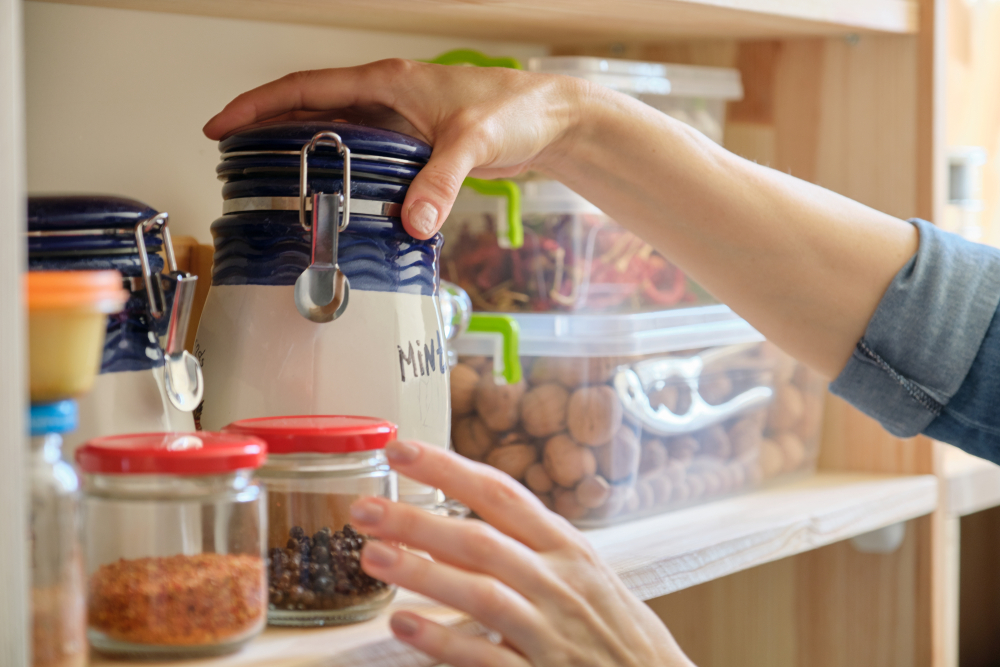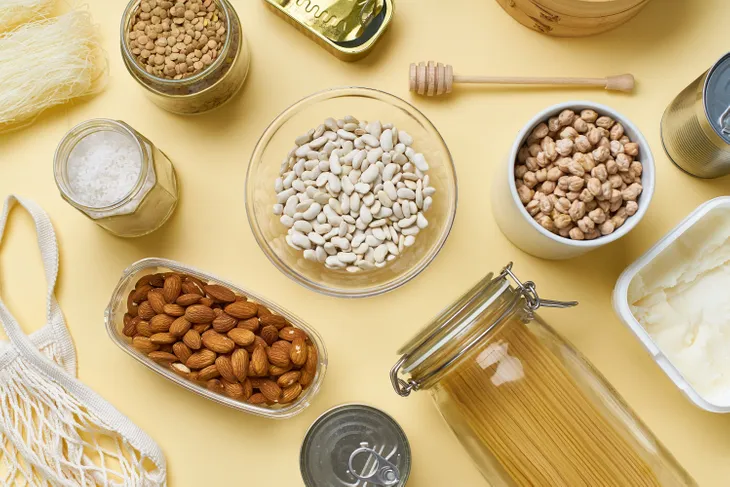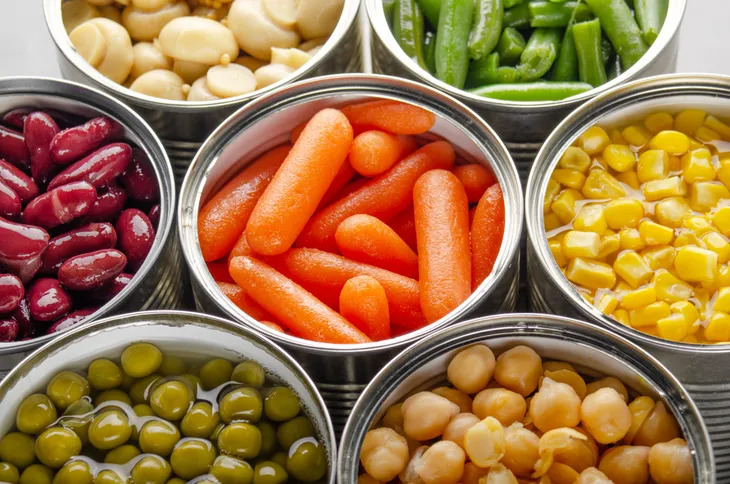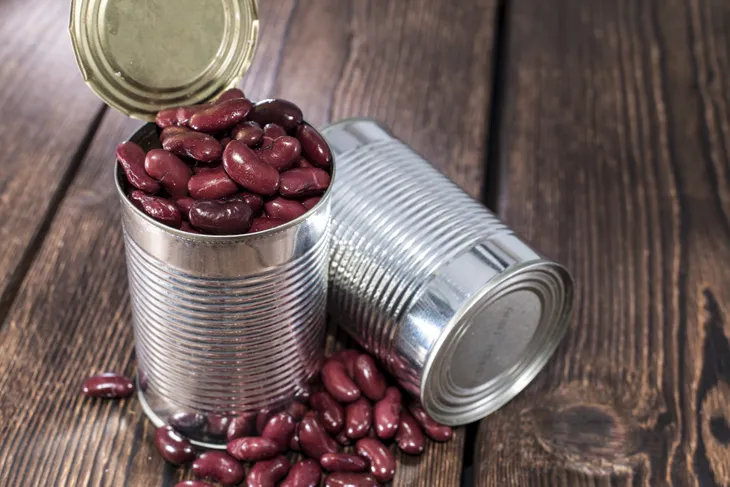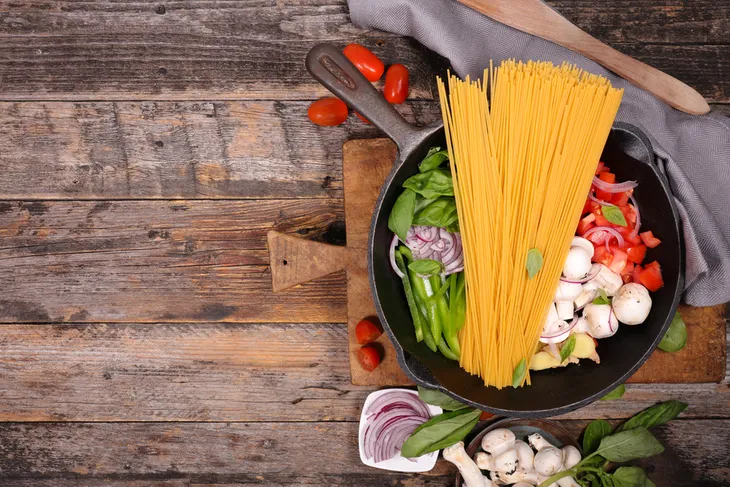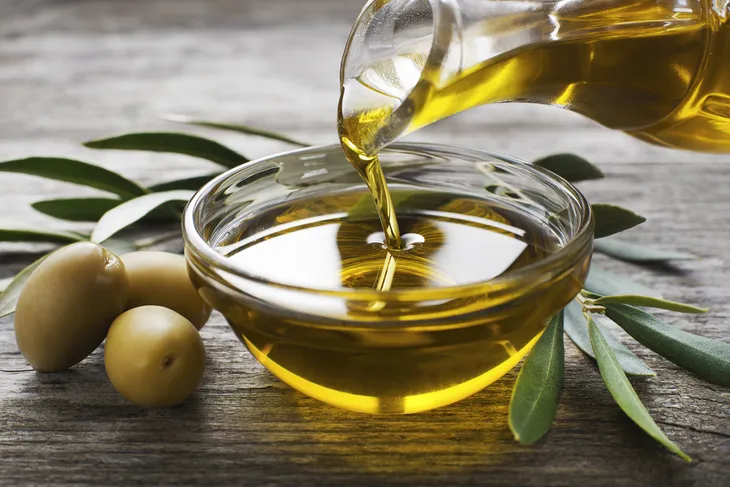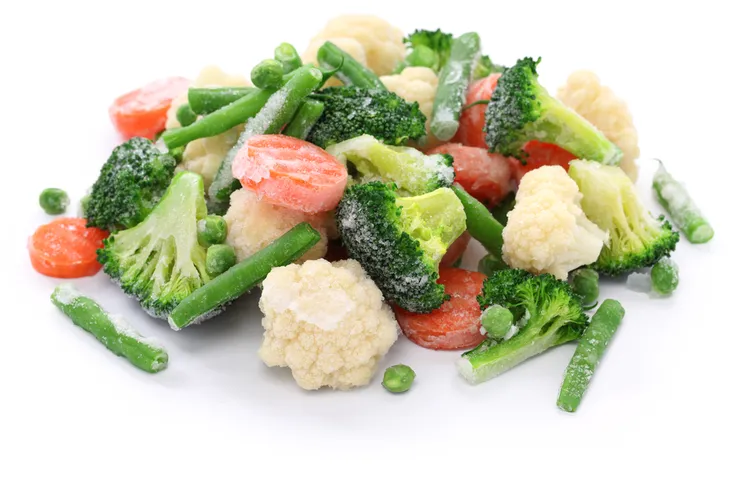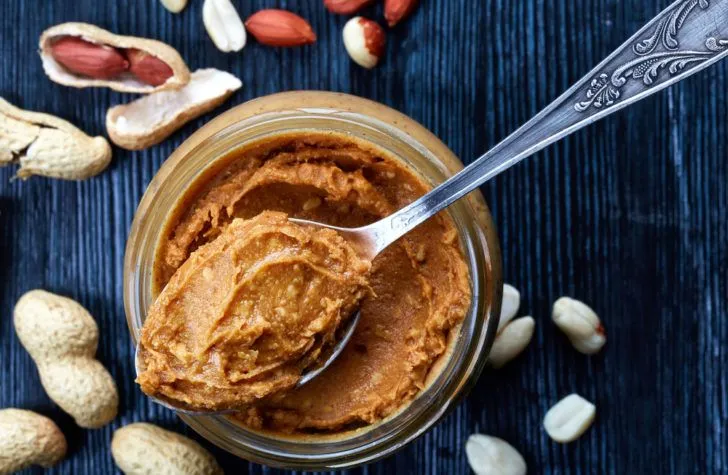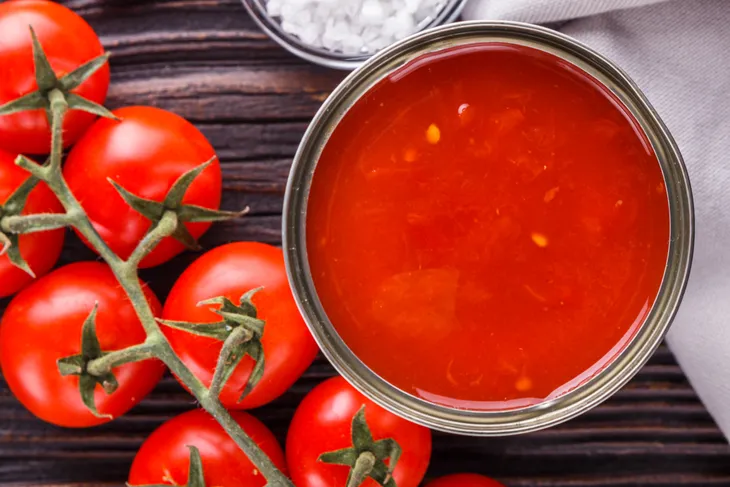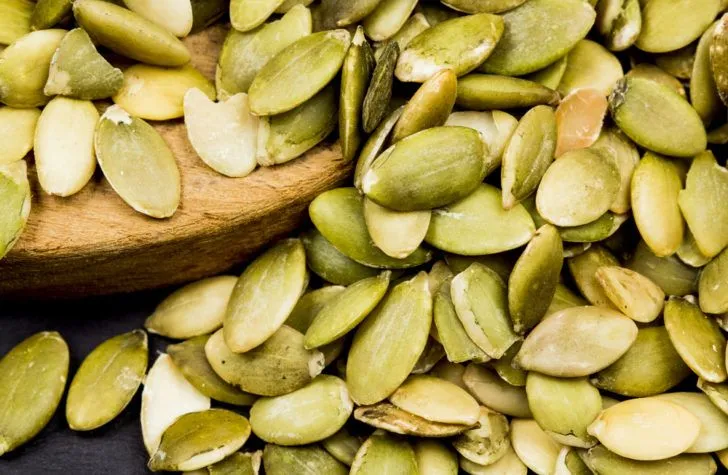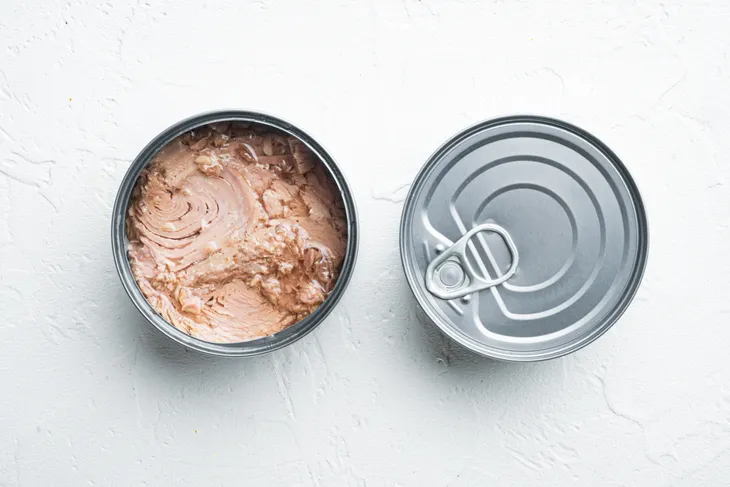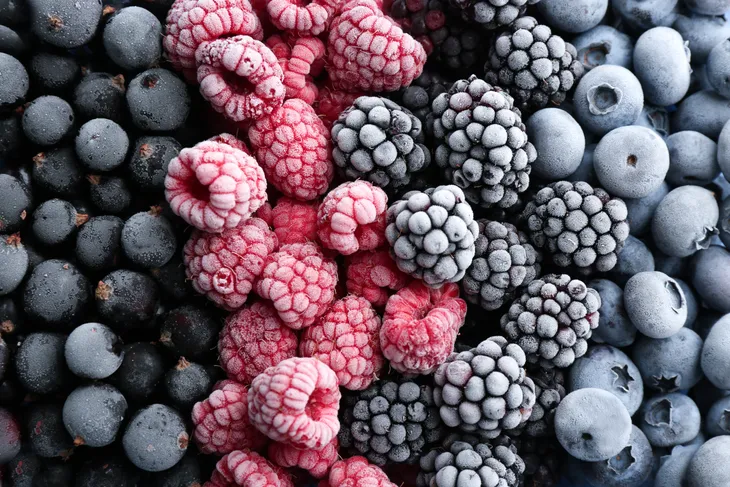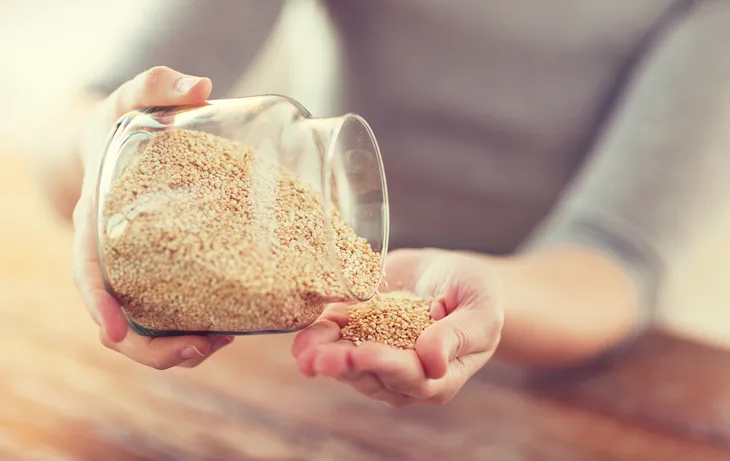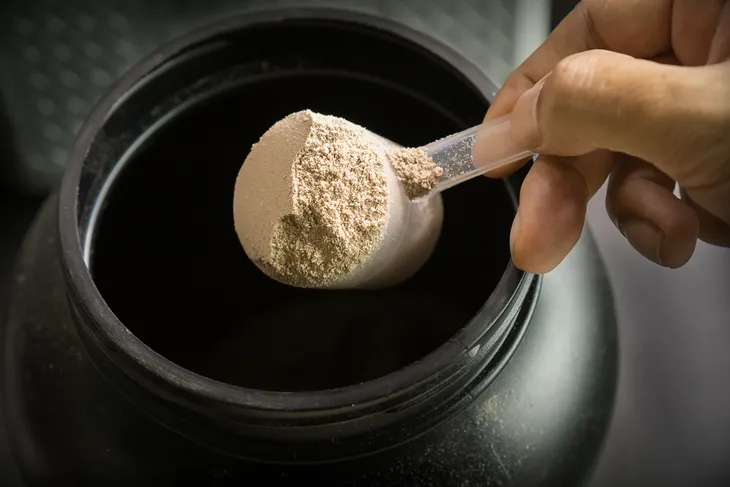- Non-perishable foods may save you money, especially if you can buy them in bulk.
- As long as the food you choose doesn’t include preservatives or additives, it can be just as healthy as buying fresh produce.
- There are many non-perishable food choices that can support a diabetic diet.
Having non-perishable food in your pantry is a good idea, regardless of what diet you follow. It doesn’t just provide you with a backup plan in case of an emergency, but stocking up on these foods – especially when they’re on sale or you can buy in bulk – can save you trips to the store.
However, if you have diabetes, it may seem difficult to find non-perishable options that fit in with a reduced-carb lifestyle. But, with a little knowledge of what to look for (and what to avoid), you can be ready to tackle the grocery store without concern! To help you out, this guide reviews some healthy additions you can make to your pantry.
Non-Perishable Food Choices
The primary benefit of having non-perishable food is that it lasts much longer. When stocking your pantry, remember that processed foods containing preservatives and additives can be bad for your health in the long run.
This doesn’t mean that all non-perishable foods are bad, and there are actually quite a few options that are low in carbohydrates and full of essential nutrients. Here are some healthy choices you can add to your cart at the grocery store.
Canned Vegetables
There’s a myth that the canning process eliminates most nutritional value from foods, but this isn’t true. Canned vegetables have just about the same amount of vitamins and minerals as their frozen or fresh counterparts.
Vegetables are a staple for many low-carb diets too because they add fiber, have few carbohydrates and are often packed with vitamins and minerals that can benefit your health. Buying canned vegetables may also save you money and you can choose low or no-sodium options.
Canned Beans
Beans are a super-food for people with diabetes because they have a low glycemic index rating, tons of protein and plenty of fiber. They’re often used as the base for multi-ingredient recipes, such as soups, chili, burritos and salads.
Popular options include kidney beans, black beans, lima beans and chickpeas. Canned beans also have a long shelf life, so you can purchase them when they’re on sale and know they will be there when you need them.
Protein Pasta
Protein pasta is a special type of pasta that’s often made from black beans or chickpeas. This makes it an excellent low-carb and high-fiber option to use as the base in a recipe. Most pasta can be kept for up to 6-months in your pantry and is an inexpensive staple food.
Many people with diabetes lament needing to give up pasta in their diets, so this allows you to enjoy it without the guilt or sugar spikes.
Olive Oil
Instead of using butter or vegetable oils, you should stock up on olive oil instead. According to WebMD, olive oil can lower your risk of stroke, improve cardiovascular health and reduce inflammation. It’s also linked to better gut health and lower cancer risk.
Olive oil has a very long shelf life, and you don’t need that much of it, so it’s an affordable way to improve your diet. Just make sure you’re buying pure olive oil that’s not blended with other oils.
Frozen Vegetables
One of the reasons many people don’t buy fresh vegetables is that they go bad quickly. Frozen vegetables can be stored for months in your freezer without losing any nutritional value, and they’re on hand whenever you need them for a recipe.
The best vegetables for people with diabetes include leafy greens and cruciferous vegetables, which are high in fiber and low in carbohydrates. Examples include spinach, kale, broccoli, cauliflower, Brussel sprouts, cabbage, watercress and collard greens.
Nut Butters
Peanut butter is an excellent non-perishable food for people with diabetes. It’s high in protein and has healthy fats, and as long as you purchase it without added sugar, it’s acceptable on a diabetic diet. You don’t need to stop there, however, as you can also find cashew butter, almond butter and other nut butters made with different combinations of nuts and seeds.
Nut butters have very long shelf lives and don’t require refrigeration after opening.
Canned Tomatoes
Canned tomatoes are a great place to start if you like to make your own sauces or stews. They last several years in the pantry and are rich in minerals that aid your heart, and don’t have a ton of carbs.
You can also use canned tomatoes to make salsa, as a base for chili or to make a homemade pizza sauce. Tomatoes are versatile, so feel free to get creative with them.
Tree Nuts
Tree nuts are loaded with healthy fats and protein, and don’t have a lot of carbs. They’re also great as a substitute for breading when making chicken or fish dishes to cut your carbs even more.
Tree nuts are linked to reduced inflammation, better heart health and better appetite control. Most of them last 6-months in your pantry, but you could extend their shelf life if you throw them in your refrigerator or freezer.
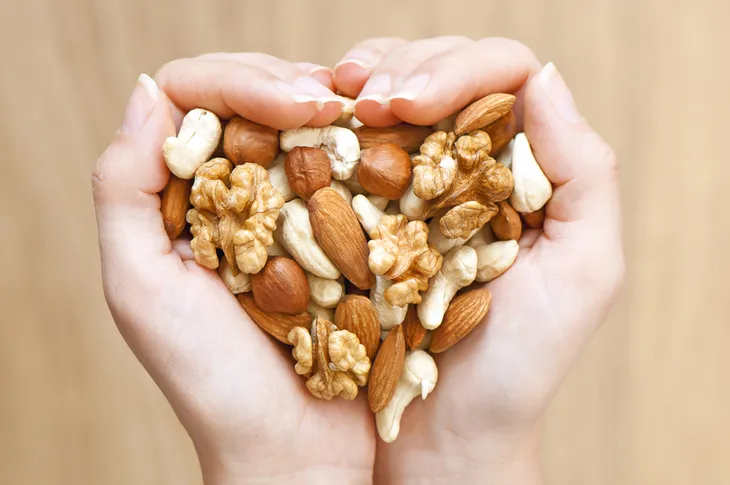 Shutterstock/olgaman
Shutterstock/olgamanSeeds
Seeds have an incredible shelf life and can last up to four years without going bad. They’re another food packed with fiber, so they can help you control your cravings between meals. The fiber is also great for your gastrointestinal health as it slows digestion to help you regulate your sugar and can prevent constipation.
Some great seeds to stock in your pantry include pumpkin seeds, sunflower seeds, flaxseeds, sesame, and chia seeds. They’re great in salads, smoothies or baked goods.
Canned Fish
Salmon, tuna and other canned fish varieties are great staples in a diabetic’s cupboard. They’re loaded with protein, have no carbs and provide omega-3 fatty acids that are essential for brain function and a boosted metabolism.
Most canned fish is good for over two years, so you don’t need to worry about it spoiling, and it’s good on its own as a snack, formed into a patty or added to a salad or casserole.
Frozen Fruits
Fruits have many antioxidants we need to maintain healthy immune systems and fight inflammation. Healthy fruits for people with diabetes include strawberries, raspberries and blueberries because they’re high in fiber and don’t have too much sugar.
You can store most types of fruits in the freezer for up to a year and thaw it out for a snack, throw it into a smoothie, add it to some yogurt or use it in your next baking project.
Quinoa
Quinoa is a whole grain with fewer carbohydrates than rice or wheat, making it an excellent alternative for baking and other recipes that require grain. It can last for up to a year if you keep it in a dry and sealed container.
It contains a lot of fiber and healthy protein, making it even better if you have diabetes because you can fill yourself up without a blood sugar spike.
Dark Chocolate
For those who need to avoid sweets, dark chocolate is a fantastic treat that can actually help you regulate your blood sugar. The trick is to purchase chocolate with a very high cocoa content because it won’t have as much sugar as milk chocolate.
If you throw it in the cupboard, it can keep for over four months, but freezing it makes it last even longer. You can enjoy dark chocolate on its own or add it to your favorite dessert recipes.
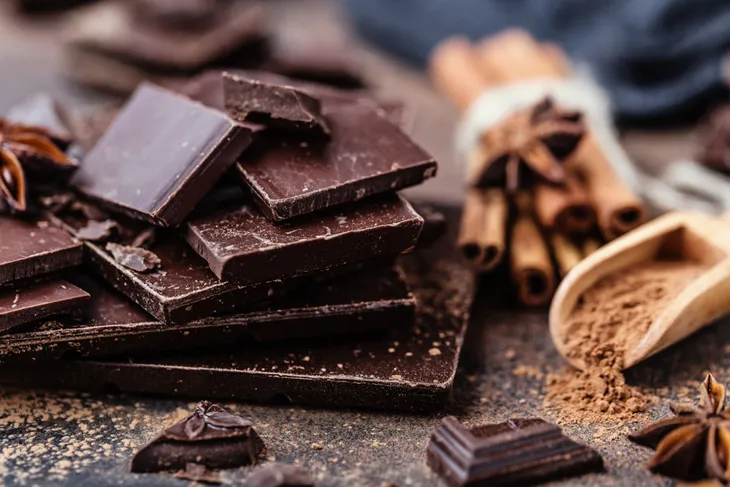 Shutterstock/ Ala Shauratskaya
Shutterstock/ Ala ShauratskayaProtein Powder
Protein powder lets you enjoy a replacement meal whenever you need one, and you can get creative with how you use it. Instead of mixing it into water or milk, you can throw it into a smoothie, mix it in with some yogurt or add it to peanut butter.
Protein powder is low in sugar and fat and it can last for a year in your pantry as long as you keep it dry.
